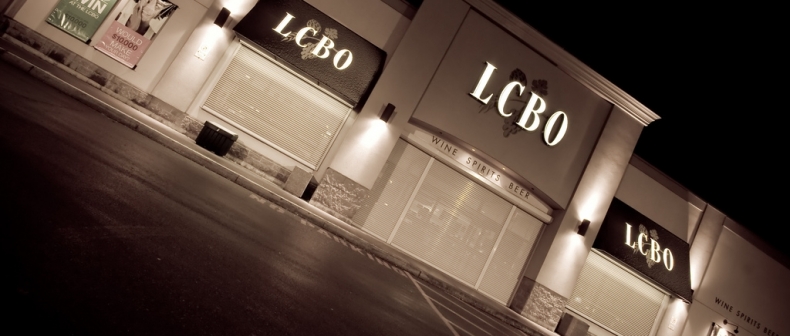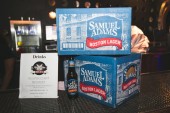
By Anthony Matijas
With a recent vote by LCBO employees overwhelmingly in support of going on strike should their contract renegotiations with the province fail, Toronto is menaced by the possibility of a protracted labour dispute worse than the garbage and TTC strikes combined. The Ontario Public Service Employee’s Union leader Warren “Smokey” Thomas assures us that it won’t come to this, that threats to strike are merely bargaining tools rarely acted upon, and an agreement will surely be reached as patio season returns.
With so much at stake, even the most ardent labour supporters may find little solace in the optimism of the union boss, and it’s questionable if many will support an accidental return to Prohibition because of a disagreement over wages for part-time workers. At least temperance societies, in their day, were early adopters of protesting domestic violence. That was a cause worthy of sobriety. As we contemplate stocking up our liquor cabinets to prepare for a dry summer, we should reconsider our relationship with the LCBO, this strange government agency that gets us drunk. The Board may pay too little for its part-timers, but we pay too much for their product. They refer to this as their mandate to promote responsible drinking, though it may be more accurately described as price-gouging.
In December 2011, Ontario’s Auditor General Jim McCarter released a report revealing that costs for consumers are raised by the crown corporation’s inefficient purchasing policies. Rather than using its immense buying power to negotiate the lowest prices possible from suppliers, sometimes it will actually ask for a higher quote to fit their pricing scheme. The Board employs a fixed markup rate and seeks new products to fit predetermined retail prices. Thus, despite selling to one of the largest purchasers of alcohol in the world, if a supplier is selling a product below the desired price, they are told to charge more. The customer is being asked to pay more– not to provide extra revenue for hospitals, schools, and the cancellation of gas plants, but only to increase the profits of alcohol producers.
A month after the revelations of the Auditor General’s report, the LCBO raised their prices. The price hike affected only a small number of their products, and only amounted to a 50-cent increase on lower-end items, but it demonstrated the arrogance of a government agency that views itself immune from public opinion. Even more condescendingly, it defended its pricing policies by invoking its 86-year-old responsible drinking mandate, claiming that lower prices would encourage more alcohol consumption. The assumption here is that Ontario is populated primarily by borderline alcoholics, and only an artificially high price point keeps us safe from destroying both our livers and families.
More disappointing than the lack of public reaction to this behaviour, is the fact that the LCBO can tout its mandate, based on an early 20th century concept of alcohol as vice, and still be taken seriously. When it was first formed in 1927, the LCBO was a compromise between popular prohibitionist sentiments and a provincial conservative government’s promise to balance the budget. Not only would the government take charge of liquor sales, but it would closely monitor the purchases of its customers to enforce its definition of responsibility.
In Punched Drunk: Alcohol, Surveillance and the LCBO 1927-1975, Gary Genosko and Scott Thompson detail the history of the Board’s early enforcement of this mandate.
In order to buy alcohol, one needed a liquor permit that would list their occupation and recent purchases, which would be seen by the vendor upon each visit. Those suspected of buying too much alcohol relative to their salary, or of abusing their privilege to drink, would be investigated by LCBO G-men. Neighbours, relatives, and employers would be questioned, medical records searched, and all available personal information examined to determine if you should be cut off from the drink indefinitely by a process called interdiction. The working classwere largely the target of the Board’s disciplinary actions, and women too were targeted by these policies as a means to enforce sexual modesty. Natives were not to drink at all, and even looking too aboriginal could be enough to be placed on the list of interdicted drinkers known affectionately as the “Indian List”. Such investigations were no small matter. In its early years, the majority of the Board’s staff and budget were devoted to surveillance rather than the sale of liquor or the balancing of budgets.
Even more dystopian, “Preventative Cancellations” were issued to prevent future permit applications, not based on the actions of the individual, but merely for being identified as a member of an at-risk demographic.
It’s 2013 now, and the LCBO has long ago shed its poor-man’s impersonation of a police state, but so what? The very least I ask of my government institutions is to not be racist, sexist, classist, or Orwellian. We should expect a little more from the Board than a benign reinterpretation of its original mandate, especially when that reinterpretation doesn’t hold up to scrutiny. By claiming that lower prices would encourage higher consumption, they are ignoring the fact that, if I were really hard up, I could stop drinking pricey imported beer and switch to the stronger, cheaper Colt 45. There is nothing socially responsible about Colt 45, it is designed for 15 year olds to teach them about the dangers of alcohol poisoning before they’re old enough to sneak into bars.
On its website, the LCBO boasts of checking 6.3 million IDs and refusing service to 290,000 unconvincing teenaged moustaches in 2011-12. When compared to other retailers of age-restricted materials, the numbers were not so impressive. One in 4 minors were able to purchase alcohol from the LCBO, while only 1 in 5 were able to buy beer from the Beer Store. Independent convenience stores, with perhaps the most to lose for drawing regulatory ire, only sold cigarettes to 1 in 8 minors in the same study.
There is also the health angle to all of this. Prices may be higher than they need to be, but the Board’s revenues help pay for our health care, and everybody knows that alcohol is unhealthy. There may be some readers, those whose favourite yoga position is the affected pose of Moral Superiority, who will say, “I’ve taken care of my body. Why should my taxes go to pay for the health care of couch potatoes, slobs, and my alcoholic ex-boyfriend who cheated on me?”
I will tell you. The reason is because he will die first. He’ll keep drinking as he enters his middle age alone, his only company a pint of gin and the memories of dozens of flat-bellied girls he alienated in his youth, succumbing early to heart disease or liver failure. You however, with your daily exercise routine and all-natural yogurt diet, will live forever. Your body parts will expire before you will. Our hospitals will replace your hip, heart valves, and lungs, and you will survive to the age of 643 because this is the future, and if Methuselah were real he too would only consume soy milk, quinoa, and kale.
A 2012 Dutch study found that smokers and the obese cost public health care systems less money over time, for this very reason. It turns out that in Europe, people living unhealthy lifestyles have a tendency to die younger. Though this study did not focus on alcohol, a German study in that same year found that alcohol dependency shortened lifespans more so than cigarettes. Though citing two unrelated studies places this purely in the realm of conjecture, if these findings were to hold true for Ontario, it would mean that your healthy lifestyle and gainful employment are not supporting my bad habits. Rather, it may be that my creeping alcoholism is subsidizing your longevity. Nazdravlje! You’re welcome.
There is talk now of privatizing the Board. However, it is highly improbable that Tim Hudak, if he could become premier, would easily part with the $1.6 billion a year that the crown corporation puts into provincial coffers. It’s the perfect pre-campaign promise to make, it plays to all our frustrations trying to get to the closest outlet before 5PM on a Sunday, or standing in eight-hour lines the day before a civic holiday. It’s also the easiest promise to break, because nobody will feel strongly enough to hold him to it. The LCBO has never once cost the taxpayer any money. Nor would privatization help the consumer. The downward pressure on prices from competition would be offset by the loss of the massive economy of scale only a province-wide monopoly is capable of.
A strike this summer may be exactly what we need. With a minority government tottering at Queen’s Park and a Liquor store strike, public awareness could reach a critical mass and we could demand real change. Hudak has his answer, but it is nonsensical. At the very least however, we can issue the Board a new mandate. Short, succinct, difficult to reinterpret, and defined as such:
Sell us booze. Make us money. Don’t rip us off.
____
Anthony Matijas lives and writes in Toronto. Follow him on twitter at @A_Matijas.
For more, follow us on Twitter at @torontostandard and subscribe to our Newsletter.














